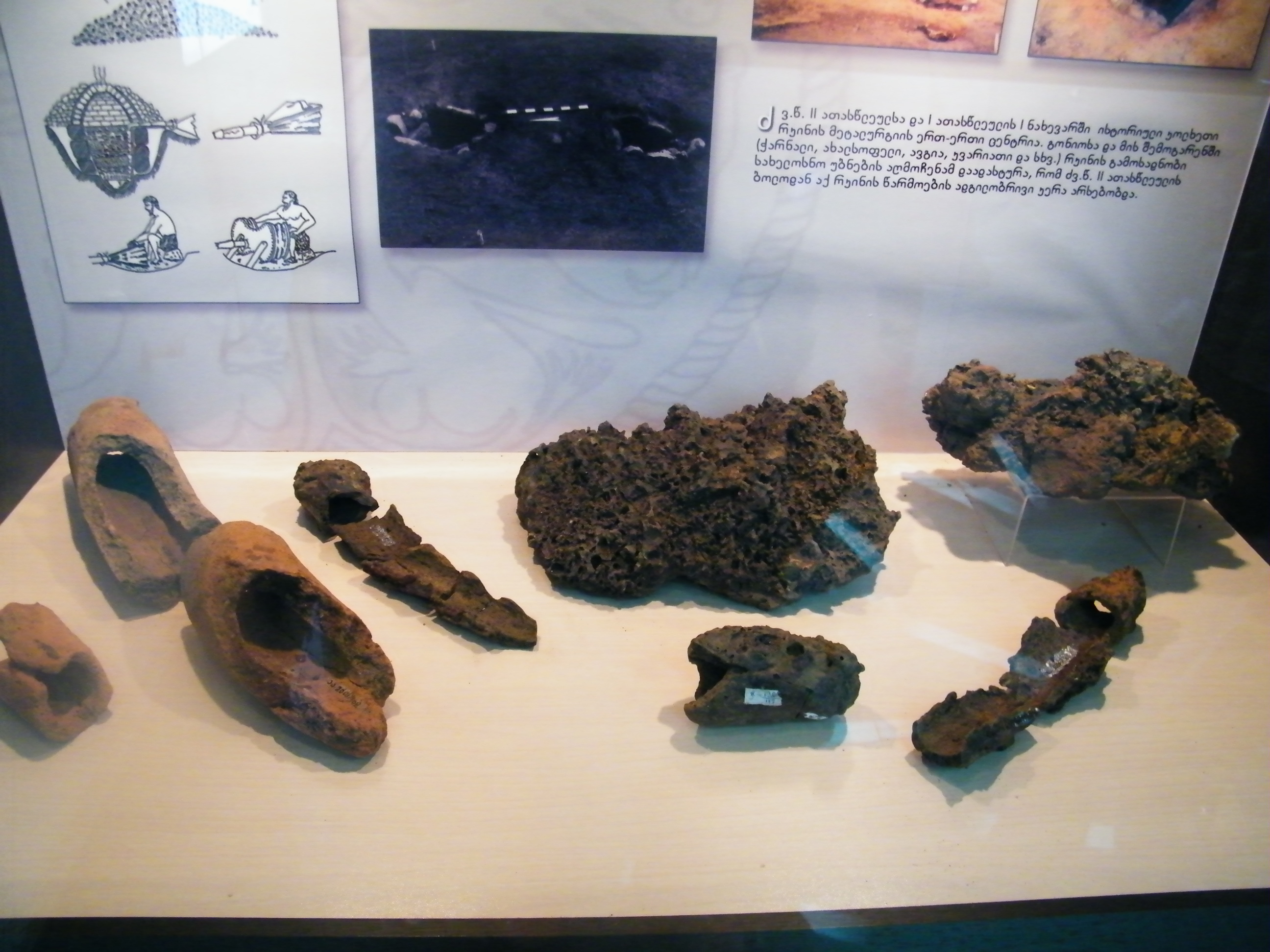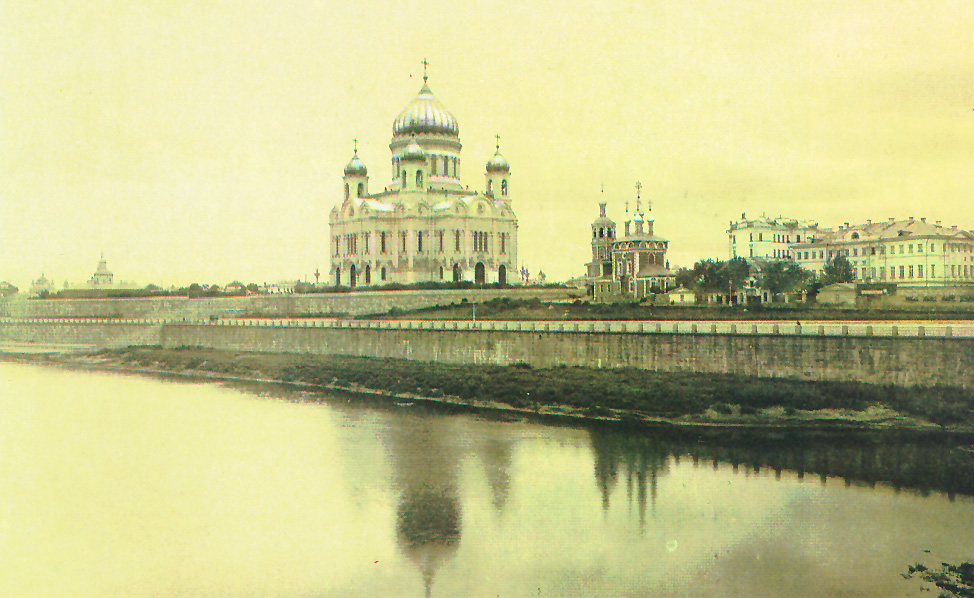|
Adjara ASSR
The Adjarian Autonomous Soviet Socialist Republic (Adjarian ASSR or Adzhar ASSR; ka, ·Éê·É≠·Éê·ÉÝ·Éò·É° ·Éê·Éï·É¢·Éù·Éú·Éù·Éõ·Éò·É£·ÉÝ·Éò ·É°·Éê·Éë·É≠·Éù·Éó·Éê ·É°·Éù·É™·Éò·Éê·Éö·Éò·É°·É¢·É£·ÉÝ·Éò ·ÉÝ·Éî·É°·Éû·É£·Éë·Éö·Éò·Éô·Éê; russian: –ê–¥–∂–∞—Ä—Å–∫–∞—è –ê–≤—Ç–æ–Ω–æ–º–Ω–∞—è –°–æ–≤–µ—Ç—Å–∫–∞—è –°–æ—Ü–∏–∞–ª–∏—Å—Ç–∏—á–µ—Å–∫–∞—è –Ý–µ—Å–ø—É–±–ª–∏–∫–∞) was an autonomous republic of the Soviet Union within the Georgian SSR, established on 16 July 1921. After the dissolution of the Soviet Union in 1991, it became the Autonomous Republic of Adjara within Georgia. Establishment After a temporary occupation by Turkish and British troops in 1918–1920, Ajaria was reunited with Georgia in 1920. A brief military conflict in March 1921 prompted the government in Ankara to cede the territory to Georgia as a consequence of Article VI of the Treaty of Kars, with the condition for autonomy to be provided for the Muslim population. Accordingly, the Soviet Union established the Adjari ... [...More Info...] [...Related Items...] OR: [Wikipedia] [Google] [Baidu] |
Autonomous Republics Of The Soviet Union
An Autonomous Soviet Socialist Republic (ASSR, russian: –∞–≤—Ç–æ–Ω–æ–º–Ω–∞—è —Å–æ–≤–µ—Ç—Å–∫–∞—è —Å–æ—Ü–∏–∞–ª–∏—Å—Ç–∏—á–µ—Å–∫–∞—è —Ä–µ—Å–ø—É–±–ª–∏–∫–∞, –ê–°–°–Ý) was a type of administrative unit in the Soviet Union (USSR) created for certain nations. The ASSRs had a status lower than the constituent union republics of the USSR, but higher than the autonomous oblasts and the autonomous okrugs. In the Russian SFSR, for example, Chairmen of the Government of the ASSRs were officially members of the Government of the RSFSR. Unlike the union republics, the autonomous republics only had the right to disaffiliate themselves from the Union when the union republic containing them did so, as well as to choose to stay with the Union separately from them. The level of political, administrative and cultural autonomy they enjoyed varied with time‚Äîit was most substantial in the 1920s (Korenizatsiya), the 1950s after the death of Joseph Stalin, and in the Brezhnev Era.Cornell, Svante E.''Auto ... [...More Info...] [...Related Items...] OR: [Wikipedia] [Google] [Baidu] |
Treaty Of Kars
The Treaty of Kars ( tr, Kars Antla≈ümasƒ±, rus, –ö–∞—Ä—Å—Å–∫–∏–π –¥–æ–≥–æ–≤–æ—Ä, Karskii dogovor, ka, ·Éß·Éê·ÉÝ·É°·Éò·É° ·ÉÆ·Éî·Éö·É®·Éî·Éô·ÉÝ·É£·Éö·Éî·Éë·Éê, hy, ‘ø’°÷Ä’Ω’´ ’∫’°’µ’¥’°’∂’°’£’´÷Ä, az, Qars m√ºqavil…ôsi) was a treaty that established the borders between Turkey and the three Transcaucasian republics of the Soviet Union, which are now the independent republics of Armenia, Georgia and Azerbaijan. The treaty was signed in the city of Kars on 13 October 1921. Signatories of the Treaty of Kars included representatives from the Grand National Assembly of Turkey, which would declare the Republic of Turkey in 1923, and from the Armenian, Azerbaijani and Georgian Socialist Soviet Republics with the participation of the Russian Soviet Federative Socialist Republic. The last four parties would become constituent parts of the Soviet Union after the victory of the Bolsheviks in the Russian Civil War and the December 1922 Union Treaty. The treaty was the successor treaty ... [...More Info...] [...Related Items...] OR: [Wikipedia] [Google] [Baidu] |
Former Socialist Republics
A former is an object, such as a template, gauge or cutting die, which is used to form something such as a boat's hull. Typically, a former gives shape to a structure that may have complex curvature. A former may become an integral part of the finished structure, as in an aircraft fuselage, or it may be removable, being using in the construction process and then discarded or re-used. Aircraft formers Formers are used in the construction of aircraft fuselage, of which a typical fuselage has a series from the nose to the empennage, typically perpendicular to the longitudinal axis of the aircraft. The primary purpose of formers is to establish the shape of the fuselage and reduce the column length of stringers to prevent instability. Formers are typically attached to longerons, which support the skin of the aircraft. The "former-and-longeron" technique (also called stations and stringers) was adopted from boat construction, and was typical of light aircraft built until the ... [...More Info...] [...Related Items...] OR: [Wikipedia] [Google] [Baidu] |
States And Territories Disestablished In 1990
State may refer to: Arts, entertainment, and media Literature * ''State Magazine'', a monthly magazine published by the U.S. Department of State * ''The State'' (newspaper), a daily newspaper in Columbia, South Carolina, United States * ''Our State'', a monthly magazine published in North Carolina and formerly called ''The State'' * The State (Larry Niven), a fictional future government in three novels by Larry Niven Music Groups and labels * States Records, an American record label * The State (band), Australian band previously known as the Cutters Albums * ''State'' (album), a 2013 album by Todd Rundgren * ''States'' (album), a 2013 album by the Paper Kites * ''States'', a 1991 album by Klinik * ''The State'' (album), a 1999 album by Nickelback Television * ''The State'' (American TV series), 1993 * ''The State'' (British TV series), 2017 Other * The State (comedy troupe), an American comedy troupe Law and politics * State (polity), a centralized political organizatio ... [...More Info...] [...Related Items...] OR: [Wikipedia] [Google] [Baidu] |
States And Territories Established In 1921
State may refer to: Arts, entertainment, and media Literature * ''State Magazine'', a monthly magazine published by the U.S. Department of State * ''The State'' (newspaper), a daily newspaper in Columbia, South Carolina, United States * ''Our State'', a monthly magazine published in North Carolina and formerly called ''The State'' * The State (Larry Niven), a fictional future government in three novels by Larry Niven Music Groups and labels * States Records, an American record label * The State (band), Australian band previously known as the Cutters Albums * ''State'' (album), a 2013 album by Todd Rundgren * ''States'' (album), a 2013 album by the Paper Kites * ''States'', a 1991 album by Klinik * ''The State'' (album), a 1999 album by Nickelback Television * ''The State'' (American TV series), 1993 * ''The State'' (British TV series), 2017 Other * The State (comedy troupe), an American comedy troupe Law and politics * State (polity), a centralized political organizatio ... [...More Info...] [...Related Items...] OR: [Wikipedia] [Google] [Baidu] |
Georgian Soviet Socialist Republic
The Georgian Soviet Socialist Republic (Georgian SSR; ka, ·É°·Éê·É•·Éê·ÉÝ·Éó·Éï·Éî·Éö·Éù·É° ·É°·Éê·Éë·É≠·Éù·Éó·Éê ·É°·Éù·É™·Éò·Éê·Éö·Éò·É°·É¢·É£·ÉÝ·Éò ·ÉÝ·Éî·É°·Éû·É£·Éë·Éö·Éò·Éô·Éê, tr; russian: –ì—Ä—É–∑–∏–Ω—Å–∫–∞—è –°–æ–≤–µ—Ç—Å–∫–∞—è –°–æ—Ü–∏–∞–ª–∏—Å—Ç–∏—á–µ—Å–∫–∞—è –Ý–µ—Å–ø—É–±–ª–∏–∫–∞, Gruzinskaya Sovetskaya Sotsialisticheskaya Respublika) was one of the republics of the Soviet Union from its second occupation (by Russia) in 1921 to its independence in 1991. Coterminous with the present-day republic of Georgia, it was based on the traditional territory of Georgia, which had existed as a series of independent states in the Caucasus prior to the first occupation of annexation in the course of the 19th century. The Georgian SSR was formed in 1921 and subsequently incorporated in the Soviet Union in 1922. Until 1936 it was a part of the Transcaucasian Socialist Federative Soviet Republic, which existed as a union republic within the USSR. From November 18, 1989, the Georgian ... [...More Info...] [...Related Items...] OR: [Wikipedia] [Google] [Baidu] |
History Of Adjara
The article refers to the history of Georgia's Autonomous Republic of Adjara. Ancient and medieval Adjara Archeologists say the territory has been inhabited since the Neolithic Age. Occupied by an ancient Georgian tribe of Moskhs from ancient times, the territory of Adjara was a province of Colchis from the 7th to 3rd centuries BC. Part of the area formed a county (saeristavo) within the Kingdom of Iberia in the late 4th century BC. Colonized by Greek merchants in the 5th and 4th century BC, the coastal Adjara later came under Roman rule. Bathus (Bathys) (the present day Batumi) and Apsaros (Apsaruntos) (modern Gonio) were the key cities and fortresses at that time. Archeological excavations have revealed ruins of a rich ancient town at Pichvnari near the present day town of Kobuleti. In the 2nd century AD, Bathus was an important military base for Roman legions. Apsaros was famous for its theatre. The early Christian era in Adjara was linked with names of Saint Andrew, ... [...More Info...] [...Related Items...] OR: [Wikipedia] [Google] [Baidu] |
Politics Of Adjara
Politics (from , ) is the set of activities that are associated with making decisions in groups, or other forms of power relations among individuals, such as the distribution of resources or status. The branch of social science that studies politics and government is referred to as political science. It may be used positively in the context of a "political solution" which is compromising and nonviolent, or descriptively as "the art or science of government", but also often carries a negative connotation.. The concept has been defined in various ways, and different approaches have fundamentally differing views on whether it should be used extensively or limitedly, empirically or normatively, and on whether conflict or co-operation is more essential to it. A variety of methods are deployed in politics, which include promoting one's own political views among people, negotiation with other political subjects, making laws, and exercising internal and external force, including war ... [...More Info...] [...Related Items...] OR: [Wikipedia] [Google] [Baidu] |
First Secretary Of The Adjar Communist Party
The First Secretary of the Adjar regional branch of the Communist Party of the Soviet Union was the position of highest authority in the Adjar ASSR in the Georgian SSR of the Soviet Union. The position was created in 1921, and abolished in 1991. The First Secretary was a de facto appointed position usually by the Politburo or the General Secretary himself. List of First Secretaries of the Communist Party of Adjaria See also *Adjar Autonomous Soviet Socialist Republic The Adjarian Autonomous Soviet Socialist Republic (Adjarian ASSR or Adzhar ASSR; ka, ·Éê·É≠·Éê·ÉÝ·Éò·É° ·Éê·Éï·É¢·Éù·Éú·Éù·Éõ·Éò·É£·ÉÝ·Éò ·É°·Éê·Éë·É≠·Éù·Éó·Éê ·É°·Éù·É™·Éò·Éê·Éö·Éò·É°·É¢·É£·ÉÝ·Éò ·ÉÝ·Éî·É°·Éû·É£·Éë·Éö·Éò·Éô·Éê; russian: –ê–¥–∂– ... Notes {{notelist SourcesWorld Statesmen.org Regional Committees of the Communist Party of Georgia (Soviet Union) Politics of Adjara 1921 establishments in Russia 1991 disestablishments in the Soviet Union ... [...More Info...] [...Related Items...] OR: [Wikipedia] [Google] [Baidu] |
Religion In The Soviet Union
The Soviet Union was established by the Bolsheviks in 1922, in place of the Russian Empire. At the time of the 1917 Revolution, the Russian Orthodox Church was deeply integrated into the autocratic state, enjoying official status. This was a significant factor that contributed to the Bolshevik attitude to religion and the steps they took to control it. Thus the USSR became the first state to have as one objective of its official ideology the elimination of existing religion, and the prevention of future implanting of religious belief, with the goal of establishing state atheism (''gosateizm''). Under the doctrine of state atheism in the Soviet Union, there was a "government-sponsored program of conversion to atheism" conducted by Communists. The Communist government targeted religions based on State interests, and while most organized religions were never outlawed, religious property was confiscated, believers were harassed, and religion was ridiculed while atheism was propagate ... [...More Info...] [...Related Items...] OR: [Wikipedia] [Google] [Baidu] |
Persecution Of Christians In The Soviet Union
Throughout the history of the Soviet Union (1917–1991), there were periods when Soviet authorities brutally suppressed and persecuted various forms of Christianity to different extents depending on State interests. Soviet Marxist-Leninist policy consistently advocated the control, suppression, and ultimately, the elimination of religious beliefs, and it actively encouraged the propagation of Marxist-Leninist atheism in the Soviet Union. However, most religions were never officially outlawed. The state advocated the destruction of religion, and to achieve this goal, it officially denounced religious beliefs as superstitious and backward. Froese, Paul. "'I am an atheist and a Muslim': Islam, communism, and ideological competition." Journal of Church and State 47.3 (2005) The Communist Party destroyed churches, synagogues, and mosques, ridiculed, harassed, incarcerated and executed religious leaders, flooded the schools and media with anti-religious teachings, and it ... [...More Info...] [...Related Items...] OR: [Wikipedia] [Google] [Baidu] |





